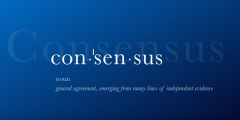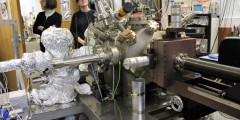Science, culture and cultural differences
May 1, 2016
Athene Donald recently published a thought-provoking blog post on culture and science. This post was itself motivated by discussions she has had with the Science Advisory Council for the Department of Culture, Media and Sports and a question posed by a member of this advisory council, Geoff Crossick, namely: ‘What do you mean by science?’ …
Climate, science and politics: The certainty and consensus confusion
April 24, 2016
In this, my probably final, blog post on climate change, I’ll return to a topic that has troubled me for many years, namely religious rhetoric used in debates about climate change science and climate change politics. The terrain between climate change science and climate change politics has become a bit of a swamp and the …
Synthetic Biology and Responsible Language Use: An anthology of blog posts
April 11, 2016
Over the last couple of years I have written quite a few blog posts on synthetic biology and responsible research and innovation, focusing in particular on the use of metaphors in both science and policy/politics. I have now assembled them, DIY fashion, into a little ‘booklet’. If anybody has the time and/or inclination to do …
Science, politics and magic
April 10, 2016
A couple of years ago, prompted by an article by Bernadette Bensaude-Vincent, I wrote a blog post about ‘responsible innovation’ as a buzzword. About a year ago, I tried to understand the appeal of another buzzword, namely ‘co-production’. Yesterday, I cleared out some files and happened to come across some thirty-year-old notes on the magical …
Reviewing the evidence on transparency in science: a response to Lewandowsky & Bishop.
March 30, 2016
Co-authors: Warren Pearce, Sarah Hartley & Brigitte Nerlich. In January, Nature published a Comment piece by Lewandowsky and Bishop entitled “Don’t let transparency damage science“. The authors argued that some of the “measures that can improve science — shared data, post-publication peer review and public engagement on social media — can be turned against scientists”. …
Acceleration, autonomy and responsibility
March 18, 2016
In recent emails and meetings there has been a lot of talk about ‘acceleration’, both about the rhetorical use of acceleration in the context of Responsible Research and Innovation (RRI) and about the reality of living in an accelerated academy. In this post I will examine ‘acceleration’ a bit further, especially in the context of …
3D printing with atoms: Beginning a story
March 8, 2016
A while ago Phil Moriarty published a post here on the ‘Making Science Public’ blog to announce a new project in which we are both involved. He talked about ‘impact’, or rather, the ‘non-impact’ type public engagement work we want to do. The project deals with Mechanochemistry at the single bond limit: Towards deterministic epitaxy. …
Sock puppets, muzzles and the impact agenda
February 24, 2016
This is a post by JOHN HOLMWOOD A new threat to the contribution of university research to public debate has been identified. This derives from Cabinet Office rules that would prevent bodies in receipt of grants from Government from lobbying. It has been suggested that this could muzzle academic research. Ironically, the rules derive from …










